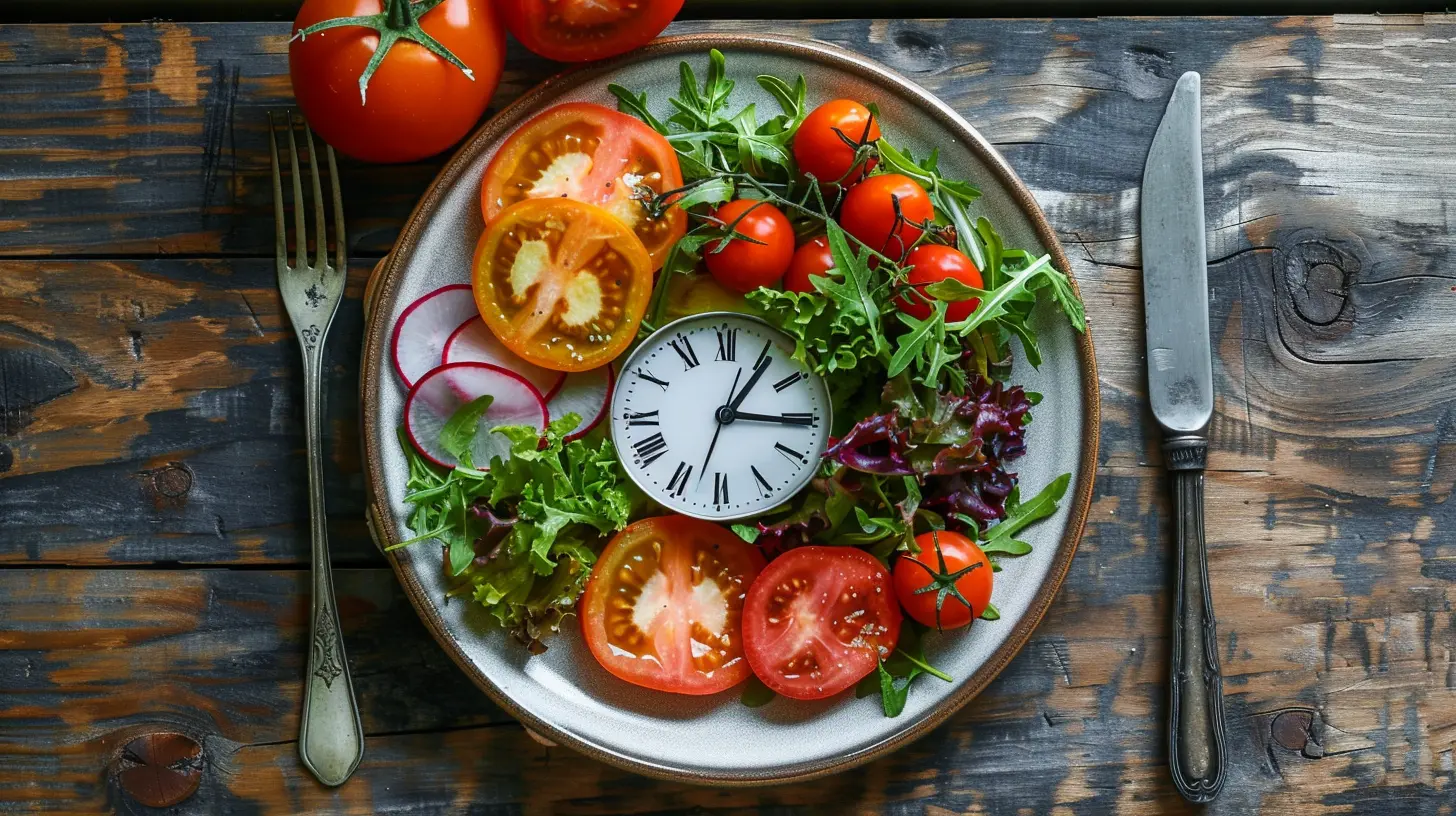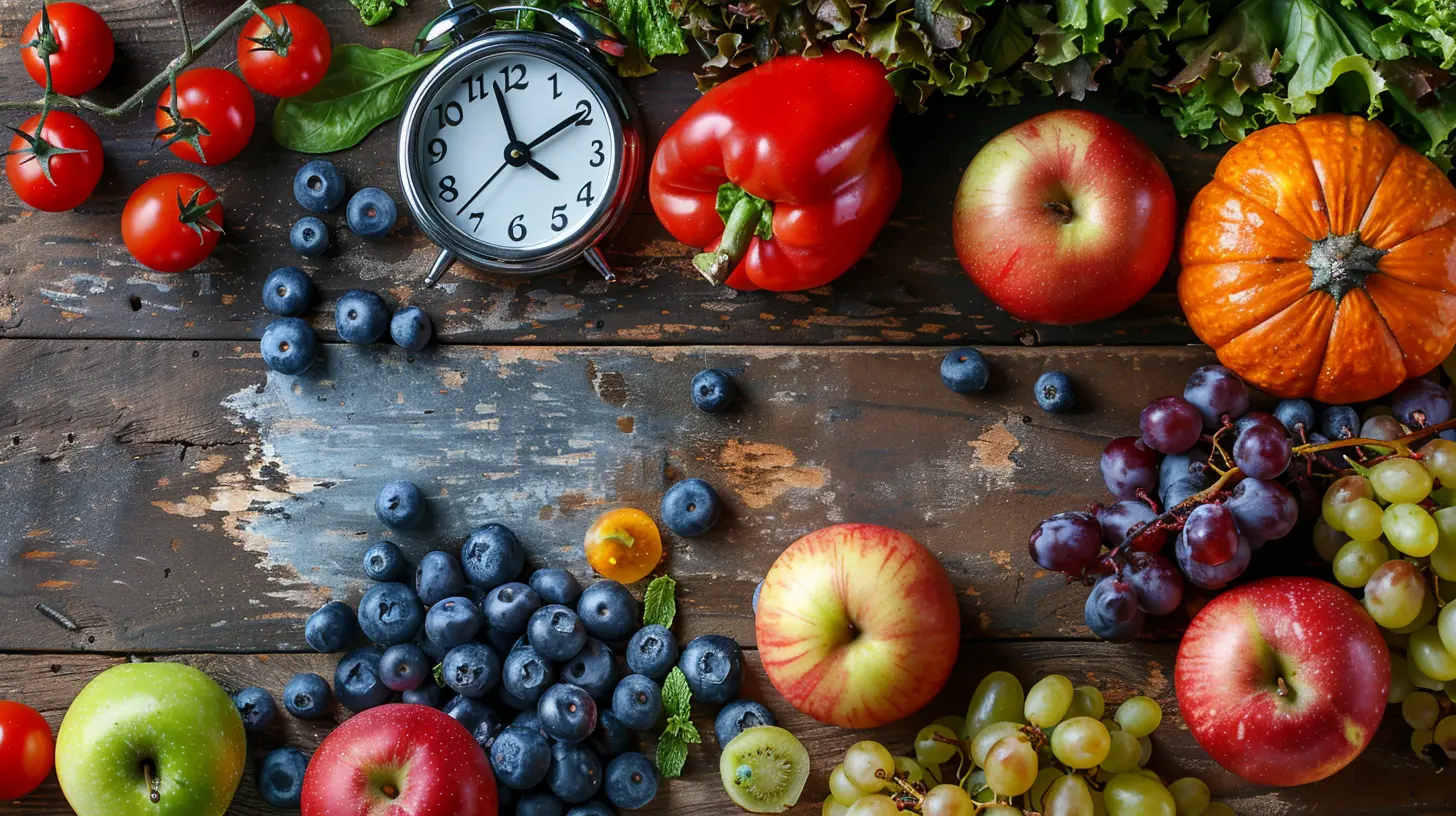Intermittent Fasting vs. Traditional Dieting: What's Better?
16 August 2025
Let’s be honest—dieting is tough. Like, “trying to fold a fitted sheet” kind of tough. If you’ve ever stared at a sad salad while daydreaming about pizza, you know exactly what I mean. And with a flood of weight loss programs out there, it’s enough to make your kale wilt in confusion.
So, let’s zoom in on two big contenders in the weight loss ring: Intermittent Fasting (IF) and Traditional Dieting. They're both fighting for the championship belt labeled “Best Way to Lose Weight Without Losing Your Mind.” But which one comes out on top?
Grab a snack—well, only if you're not fasting—and let’s break this down.
What the Heck is Intermittent Fasting?
Let’s start with the new kid on the block (even though it's been around for centuries). Intermittent Fasting, or IF if you're into the whole brevity thing, isn’t really a “diet” in the traditional sense. It doesn’t focus on what you eat as much as when you eat.In simple terms, it’s an eating pattern that cycles between periods of eating and not eating. Think of it as scheduled snacking—or scheduled not snacking, depending on how optimistic you are.
Popular Intermittent Fasting Methods
- 16/8 Method – You eat during an 8-hour window and fast for 16 hours.- 5:2 Diet – Eat normally five days a week, then limit yourself to 500–600 calories the other two days.
- Eat-Stop-Eat – You fast for a full 24 hours once or twice a week (yep, no food at all for a whole day).
- Alternate-Day Fasting – Eat one day, fast the next. Rinse and repeat.
Sounds kinda intense? It can be. But fans of IF swear by it. More on that in a bit.
Traditional Dieting: The Old Reliable
Now let’s talk about Traditional Dieting. You know the drill—counting calories, tracking macros, measuring portions like a mad scientist. Traditional diets usually revolve around structured meal plans that reduce calorie intake consistently over time.These plans might include:
- Low-carb diets (hello, keto!)
- Low-fat diets
- Weight Watchers-style point systems
- Meal replacements or pre-packaged foods
If you're someone who likes rules, structure, and knowing what you're eating at every moment of the day, traditional dieting might be your jam.
Round 1: Weight Loss Results 🥊
Let’s face it—most people jump on a diet bandwagon because they want to drop a few (or many) pounds. So how do IF and traditional diets stack up?Intermittent Fasting
Studies show that IF can be just as effective as traditional calorie restriction for weight loss. The magic lies in the fact that you're often eating fewer meals, and therefore fewer calories, without actually realizing it. Plus, fasting can increase your metabolism by boosting levels of norepinephrine—a fat-burning hormone. Pretty neat, right?Traditional Dieting
Calorie is still king. If you burn more calories than you eat, you'll lose weight. It's simple math. Traditional diets give you tighter control over calories and macronutrients. So, for those who like logging every almond they eat, this can be a really effective method.Winner: It’s a tie! 🤷♀️
Both strategies can work like a charm—if you stick with them. Sustainability is the real MVP here.
Round 2: Lifestyle & Flexibility
Intermittent Fasting
One of the biggest perks of IF? Less meal prep, fewer dishes. You’re only eating a couple of meals a day, so there's less mental energy spent planning and cooking.But fasting isn’t always easy. Your social life might take a hit unless your friends are down to brunch at 1 PM. Also, skipping breakfast can feel like betrayal for lifelong pancake lovers.
Traditional Dieting
Traditional dieting is more flexible in when you eat. Breakfast? Sure! Midnight snack? If it fits your macros, why not?But it does come with constant planning. There’s calorie counting, portion control, and—ugh—food logging. It can feel like a part-time job.
Winner: Intermittent Fasting (for the low-maintenance folks)
If you're more “go with the flow” than “planner extraordinaire”, IF might be your soul mate.Round 3: Health Benefits Beyond Weight Loss
We’re not just here for the waistline wins. What else do these strategies bring to the table?The Perks of Intermittent Fasting
- Improved Insulin Sensitivity – Helps regulate blood sugar levels- Autophagy – Fancy word for your body’s “self-cleaning” function, removing damaged cells
- Reduced Inflammation – Good news for your joints and general health
- Cardiovascular Health – Can lower LDL cholesterol and blood pressure
Traditional Dieting Perks
- Balanced Nutrition – Easier to meet all your macro and micronutrient needs- Customizable – You can tailor it to medical needs, preferences, even allergies
- Steady Energy Levels – Regular meals = fewer drops of “hangry” rage
Winner: Intermittent Fasting (barely!)
IF has some impressive research backing its non-weight-related health gains, but traditional diets still shine for those with special nutritional needs.Round 4: Hunger and Cravings
This is the true test. Can you make it through a movie night without demolishing a whole tub of popcorn?Intermittent Fasting
Believe it or not, hunger often decreases over time once your body adapts to the fasting cycles. But those first few days? Brutal. You’ll be eyeing the dog’s kibble like it's gourmet cuisine.Traditional Dieting
Frequent, smaller meals can help keep hunger at bay. But if your calorie allotment is low, cravings can stubbornly persist, especially late at night when the kitchen starts whispering your name.Winner: Call it a draw!
Early days are rough either way. But over time, both can teach your body (and brain) to chill with the snack attacks.Round 5: Sustainability and Real Life
Let’s talk long-term. The best diet is the one you’ll actually stick to. So how do these two stack up in the bigger picture?Intermittent Fasting
Ask any IF enthusiast and they’ll tell you—it becomes a lifestyle. Once you adapt, the simplicity is addictive. There’s no need to count every carrot stick, and you can still enjoy your favorite foods (just in the eating window, of course).Traditional Dieting
If you like variety, structure, and the occasional dessert without guilt, traditional dieting can work beautifully. But, it can also turn into a yo-yo of losing and gaining if you’re not careful. And nobody wants their weight to bounce like a toddler on a trampoline.Winner: Depends on your personality
Are you a free spirit? Try IF. More of a checklist person? Traditional dieting might be your better match.So… Intermittent Fasting or Traditional Dieting?
It’s not a one-size-fits-all deal, folks. Think of it like choosing between coffee and tea. Both have caffeine. Both keep you awake. One just suits your vibe better.Let’s recap real quick:
| Feature | Intermittent Fasting | Traditional Dieting |
|--------|----------------------|---------------------|
| Weight Loss | ✅ Effective | ✅ Effective |
| Flexibility | ✅ High | ❌ Requires planning |
| Health Perks | ✅ Autophagy, insulin | ✅ Balanced nutrition |
| Hunger | ⚖️ Needs adjustment | ⚖️ Needs discipline |
| Sustainability | ✅ If you adapt | ✅ If structured |
Final Verdict
If you're looking for freedom from constant meal prep, love simplicity, and don’t mind skipping breakfast, intermittent fasting might just be your ticket to health and happiness.But if you thrive on structure, enjoy eating regularly throughout the day, and want your diet to be a bit more predictable, traditional dieting could be your steady, reliable partner.
The biggest secret? Consistency. Whichever method keeps you sane, happy, and progressing—that's the one you should stick with.
There’s no magic bullet, but there is a method that works for you. Go find it.
Pro Tips Before You Pick a Side
1. Talk to your doc – Always check in with a healthcare pro, especially if you have medical conditions.2. Start slow – No need to jump straight into a 24-hour fast or cut calories in half.
3. Listen to your body – You’re the captain of this ship. If something feels off, don’t push through just because the internet said so.
4. Fuel smart – Whether fasting or dieting, your body still needs nutrients. Avoid the “potato chips and hope” method.
Bottom Line
There’s no ultimate winner in the Intermittent Fasting vs. Traditional Dieting battle. Only YOU can decide which one fits your lifestyle, goals, and personality. Don’t be afraid to experiment, mix and match, or change your approach down the line. After all, your health journey isn’t a race—it’s a lifelong adventure. 🚀Happy (and healthy) eating, friends.
all images in this post were generated using AI tools
Category:
Intermittent FastingAuthor:

Laurie Barlow
Discussion
rate this article
1 comments
Daisy McGill
Both intermittent fasting and traditional dieting offer unique benefits. The best approach depends on individual lifestyles and goals. Prioritize what feels sustainable and nourishing for your body and mind.
September 7, 2025 at 3:53 AM

Laurie Barlow
Thank you for your thoughtful comment! You're absolutely right; the best approach to dieting truly depends on personal preferences and goals. It's all about finding what works best for you!


